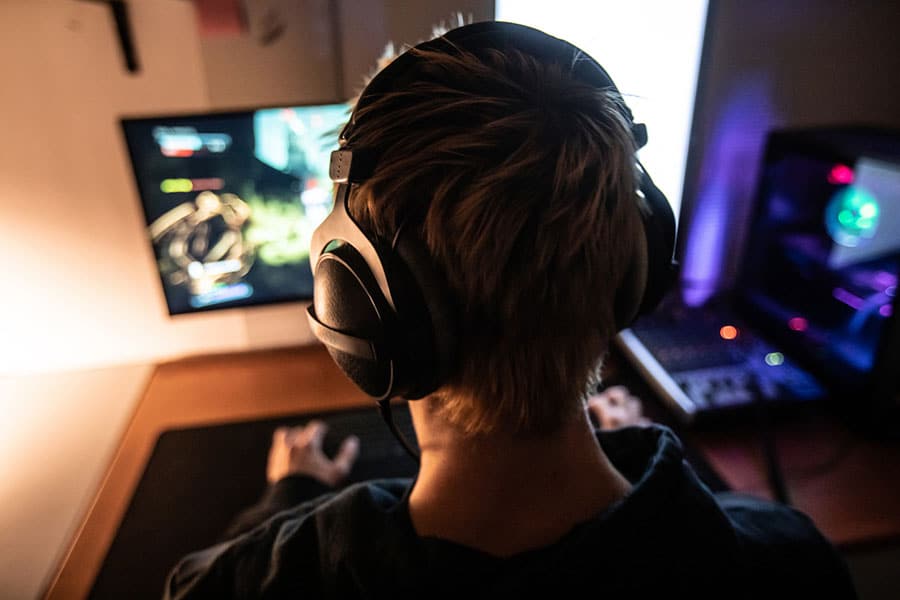Also known as Internet gaming disorder, video game addiction involves severely reduced control over gaming habits. This can lead to negative impacts on daily function, from personal and social responsibilities to educational and occupational responsibilities.
Millions of people play video games on a daily basis, yet only a relatively small percentage of them develop a video game addiction. Estimates show that video game addiction impacts between two and 10 percent of the U.S. population, according to the Cleveland Clinic. While seen in children and teens, adults are most likely to have this condition.
A Look at Video Game Addiction
Video game addiction brings a similar effect to the individual that gambling disorder does, where the rush of winning is the main reason for playing. This condition can involve gaming on the internet or any electronic device; however, most people who develop significant video game addiction mainly play on the internet.
Largely considered a behavioral addiction, what starts out for many as a fun hobby, can quickly morph into a compulsive relationship. Any activity that becomes all-consuming while negatively impacting your daily functioning can result in significant social, mental, and physical health issues.
When video game habits take over your life, it’s time to seek counseling. With the help of gaming addiction counseling in Michigan, it’s possible to:
- Achieve a healthy and sustainable life balance
- Rebuild relationships damaged by gaming addiction
- Determine mental health issues that contribute to the addiction (i.e., depression, anxiety)
- Identify the extent of the addiction
- Learn coping strategies to address it
- Work with a licensed therapist specializing in addiction treatment
Signs and Symptoms
From poor performance in school to lying to family members, there are many signs and symptoms of video game addiction:
- Poor performance at school and work or with household responsibilities
- Withdrawal symptoms, such as anxiety, sadness, or irritability when games are taken away
- A need to spend more time playing video games to achieve the same level of enjoyment
- A decline in personal hygiene due to excessive video gaming
- Giving up previously-enjoyed activities or social relationships due to excessive gaming
- Inability to reduce playing time, with unsuccessful attempts to quit
- Using video games to relieve negative moods (hopelessness, guilt, etc.)
- Lying to family members and friends about the amount of time spent gaming
- Using video games as a method of escaping stressful work or school situations, or to avoid conflicts at home
Researchers still aren’t sure what the exact cause of video game addiction is, but believe the process of playing and winning may trigger a release of dopamine. This is a neurotransmitter that plays an important role in numerous bodily functions, such as pleasurable reward and motivation. Dopamine is the very same neurotransmitter involved in other use disorders, such as substance use disorder or gambling disorder.
Recent neurological research reveals similarities in the brains of those with video game addiction and substance use disorders, says the National Institutes of Health. Additionally, evidence also suggests there is an association between video game addiction and depression, along with other psychological and social problems.
If you or a loved one are experiencing any of the above signs, talk to a licensed Michigan therapist who specializes in this type of treatment.
Contact CNLD Neuropsychology
Through gaming addiction therapy, we can help you determine why the addiction developed and what can be done to reverse the effects. The goal is to create a positive life balance where you can still enjoy your hobbies without harming other areas of your life. Contact CNLD Neuropsychology at (734) 994-9466 to get started.


